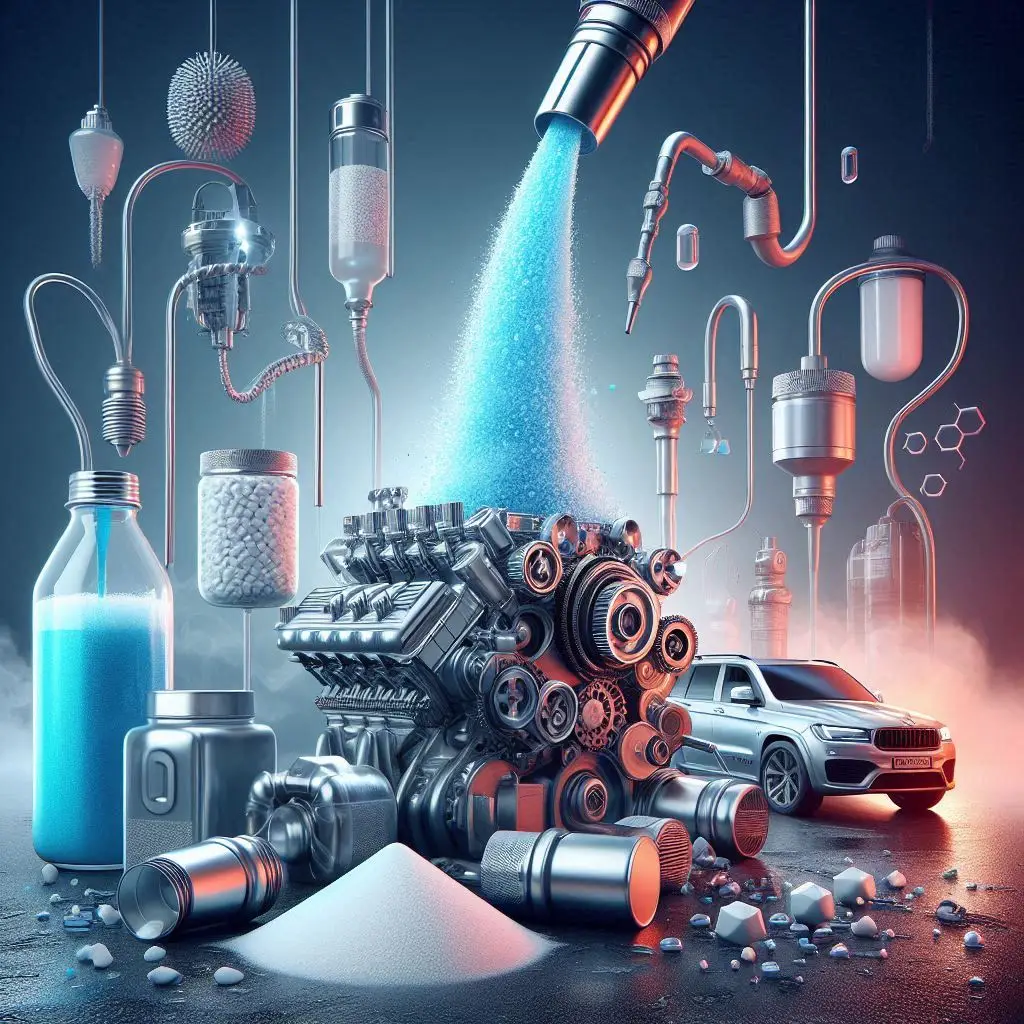
Does diesel exhaust fluid really work
Let's delve into the details of how DEF really works and its influence on diesel engine emissions.
Diesel Exhaust Fluid, sometimes known as DEF, is an essential component in contemporary diesel engines that are meant to make hazardous emissions less of a problem. Urea and deionized water make up the majority of its composition, and it is injected into the exhaust stream to convert dangerous nitrogen oxide (NOx) emissions into innocuous nitrogen and water vapor. The efficacy of DEF in lowering emissions has been shown beyond a reasonable doubt, and compliance with rigorous emission standards in several nations requires its use.
Acquiring Knowledge of DEF:
DEF is normally made up of 67.5% deionized water and 32.5% urea, according to its chemical composition characteristics. The presence of a catalyst causes a reaction between urea, a nitrogenous substance, and NOx emissions, which results in the formation of nitrogen and water, both of which are non-hazardous components.
A separate tank is used to hold diesel exhaust fluid (DEF), which is then injected into the exhaust stream before it reaches the selective catalytic reduction (SCR) catalyst. This process is known as the injection process. The electronic control unit (ECU) of the engine is responsible for regulating the exact quantity of diesel exhaust fluid (DEF) that is pumped into the engine. This regulation is dependent on many criteria, including the load on the engine, the speed of the engine, and the temperature.
Within the SCR catalyst, NOx emissions undergo a reaction with ammonia that is produced as a byproduct of the hydrolysis of urea, resulting in the formation of nitrogen and water. This process takes place at temperatures that are quite low, which enables it to be effective even during cold starts, which are normally associated with greater levels of emissions.
Efforts to decrease Emissions: NOx Reduction: The fundamental objective of DEF is to decrease NOx emissions, which are a significant contributor to air pollution and have negative consequences on both human health and the environment. When diesel engines are fitted with DEF, they are able to achieve reductions of up to 90 percent in NOx, which helps them fulfill severe emission limits.
Despite the fact that DEF is mainly aimed at decreasing emissions of nitrogen oxides (NOx), it also makes a contribution to the reduction of particulate matter (PM) emissions in a very indirect manner. The use of diesel exhaust fluid (DEF) has the potential to result in cleaner exhaust emissions overall by increasing the efficiency of engine combustion and decreasing the need for exhaust gas recirculation (EGR).
Aspects That Contribute to Effectiveness:
use: The efficacy of DEF is contingent upon its use and handled appropriately. Because impurities have the potential to reduce their effectiveness and cause damage to the SCR catalyst, they must be kept and distributed appropriately to avoid contamination.
Control of Quality: It is vital to ensure that DEF is of high quality to achieve optimum performance. By adhering to the requirements established by ISO 22241, one may ensure that the area is both pure and concentrated, hence reducing the likelihood of contaminants that might disrupt the SCR process.
Maintenance: To guarantee that DEF systems continue to function without interruption, it is essential to perform routine maintenance on them, which includes periodic refills and inspections. To avoid non-compliance with emissions regulations and potential damage to the engine, any defect or contamination must be remedied as soon as possible.
Impact on the Real World:
The use of DEF is required by emission laws such as Euro 6 in Europe and EPA Tier 4 in the United States. This is a requirement for regulatory compliance. Failure to comply with these requirements may result in significant fines and penalties for both the producers of vehicles and the operators of such vehicles.
Benefits to the Environment: The widespread use of diesel exhaust fluid (DEF) has resulted in considerable improvements in air quality by lowering the amount of nitrogen oxide (NOx) emissions produced by diesel-powered cars and industry. These factors, in turn, contribute to the reduction of smog production, acid rain, and respiratory ailments that are related to air pollution.
DEF helps to the improvement of public health by lowering emissions of nitrogen oxides and particulate matter. This is especially true in metropolitan areas where diesel cars are prominent. When emissions are reduced, there are fewer complaints of respiratory and cardiovascular issues, which eventually leads to an improvement in quality of life.
Conclusion:
Diesel Exhaust Fluid is an essential component in the process of reducing the negative effects that diesel engine emissions have on both the environment and human health. The fact that it can considerably cut down on NOx emissions, in addition to providing indirect advantages such as decreased particulate matter emissions, makes it an essential component of the technology that is used in current diesel engines. On the other hand, the effectiveness of DEF is contingent upon its use in the correct manner, quality control, and routine maintenance to guarantee the highest possible level of performance. While emission standards throughout the globe continue to grow more strict, DEF will continue to be an essential instrument in the fight against air pollution and the promotion of environmentally responsible transportation modalities.

